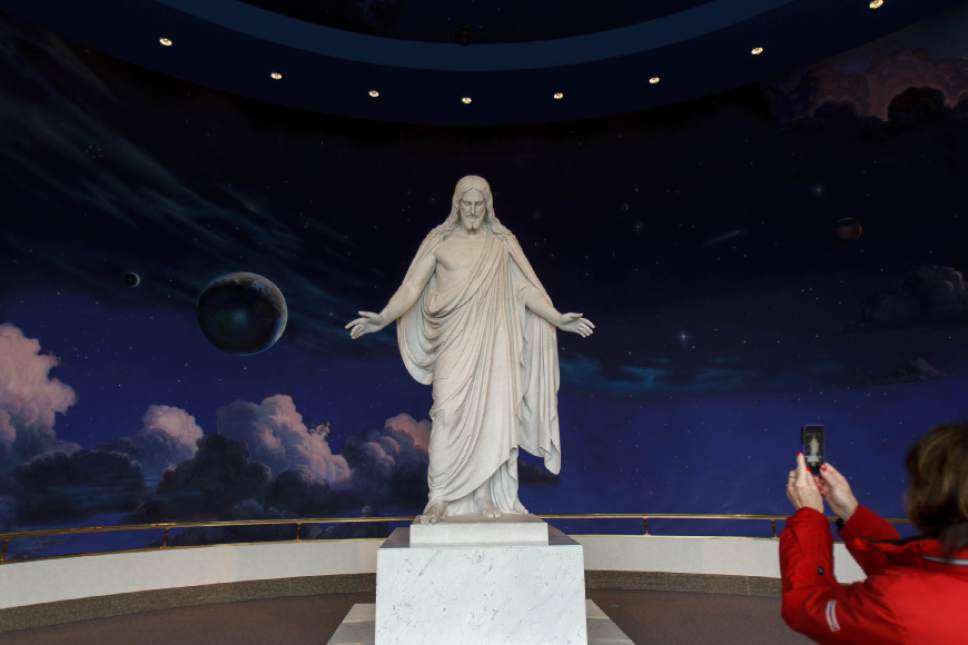This is an archived article that was published on sltrib.com in 2016, and information in the article may be outdated. It is provided only for personal research purposes and may not be reprinted.
Two-thirds of Americans believe God accepts the worship of all religions, including Christianity, Judaism and Islam.
The exception: Americans with evangelical Christian beliefs, according to LifeWay Research's 2016 State of American Theology Study. Only 48 percent of evangelicals share the belief God accepts all worship.
The study comes in the same year that Larycia Hawkins — Wheaton College's first black, female professor to receive tenure — parted ways with the evangelical flagship school after she posted on Facebook that Christians and Muslims worship the "same God." The controversy stirred fresh debate among evangelicals about whether all religions worship the same God, and whether God accepts the worship of all religions.
That's not the only theological question on which evangelicals part ways with the rest of America, according to the study. Americans, as a whole, hold seemingly incompatible beliefs: Seven in 10 Americans said there's only one true God — expressed as the Christian Trinity: Father, Son and Holy Spirit, the survey found.
"Contradictory and incompatible beliefs are OK for most people," LifeWay Research Executive Director Scott McConnell said in a news release about the study gauging Americans' understanding of Christian theology.
Among those beliefs, 6 in 10 Americans said "heaven is a place where all people will ultimately be reunited with their loved ones." But, on a separate question, 54 percent of Americans said "only those who trust in Jesus Christ alone as their savior receive God's free gift of eternal salvation."
And nearly two-thirds of Americans said Jesus is God, it said. But then, more than half said Jesus was a creature created by God.
Other notable beliefs shared by Americans:
• Most believe in the power of prayer. Two-thirds (66 percent) said God continues to answer specific prayers. Evangelicals were most likely (94 percent) to agree.
• Most also see the best in others — 65 percent agreed "everyone sins a little, but most people are good by nature." Evangelicals were less likely (54 percent) to agree.
• Americans are split on whether the Bible is literally true. Nearly half of Americans (44 percent) answered "like all sacred writings, (it) contains helpful accounts of ancient myths but is not literally true," while about the same number (45 percent) disagreed. Evangelicals were less likely (17 percent) to agree the Bible contained helpful myths and most likely (95 percent) to say it is "100 percent accurate in all it teaches."
• Forty-four percent of Americans agreed modern science discredits the claims of Christianity, while 40 percent disagreed.
• Less than half of Americans (40 percent) believe hell is an "eternal place of judgment where God sends all people who do not personally trust in Jesus Christ." Evangelicals were more likely (84 percent) to believe in hell as a place of judgment.
• Americans also disagree about issues of homosexuality, gender and abortion. About the same number of Americans said Bible verses that seem to condemn homosexual behavior do (44 percent) and don't (42 percent) apply today. That gap widens when it comes to gender identity: 38 percent agreed it is "a matter of choice," while half disagree. On abortion: 49 percent of Americans said it is a sin, while 40 percent said it is not.
The 2016 State of American Theology Study asked 47 questions on prayer, the Bible and heaven and hell.
LifeWay Research, a Nashville-based, evangelical research firm, conducted the online survey of 3,000 Americans from April 14 to 20. The overall survey has a margin of error of plus or minus 2 percentage points.
It was sponsored by Orlando-based Ligonier Ministries, an international Christian discipleship organization founded by R.C. Sproul.



